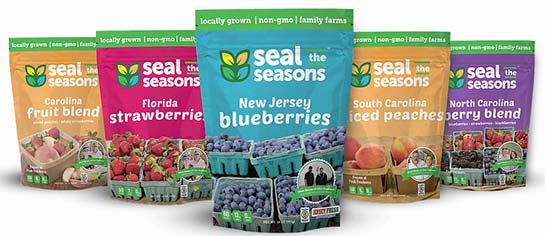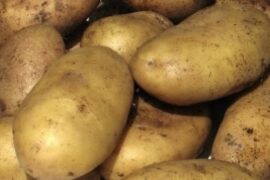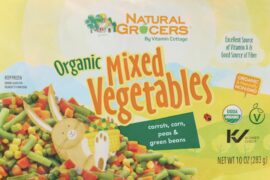Locally grown fruit from family farms in New York and New Jersey is now available in freezer cases 365 days a year in 24 Whole Foods Market stores in the northeastern United States. The retail chain recently stocked Seal the Seasons’ New Jersey Blueberries and New York & New Jersey Berry Blend (a combination of blackberries, strawberries and blueberries).
This is Seal the Seasons’ second regional distribution with Whole Foods Market, as the Chapel Hill, North Carolina-based company has already had product listed in the southland at stores in South Carolina, North Carolina, Tennessee, Alabama, Georgia and Mississippi. The outlets sell local North Carolina Blueberries, Strawberries, Berry Blend and South Carolina Peaches.

“We are excited to launch local product in our second Whole Foods Market region,” said CEO Patrick Matter, co-founder of Seal the Seasons. “Whole Foods has been a great partner in furthering our mission of making local frozen fruit available to consumers. We are thrilled to continue reaching for our goals by expanding to the Northeast region.”
Historically, distribution of frozen fruit in the United States has operated on a hub and spoke system with a company having one or two hubs in the country and very long spokes that distribute nationwide. Seal the Season uses a system of local and regional micro-hubs and short spokes that distribute to a specific state or region.
A large percentage of frozen fruit sold in the United States is imported from abroad. Frozen strawberries come from Turkey, Egypt, Serbia, Peru, Mexico and other countries. Frozen blueberries are sourced from Chile, the Philippines, Ecuador, Canada and elsewhere.
Family farms in the USA have been closing at an unprecedented rate over the past two decades, as approximately 21% of those in business during the year 2000 have closed their doors. The abbreviated season to retail fresh fruit is typically only a few weeks and, thus, there is a similarly short season for farmers to sell their produce. Seal the Seasons is committed to growing market opportunities for local and regional American farms by freezing their fruit to be marketed year-round.





